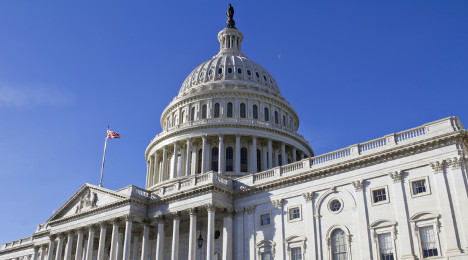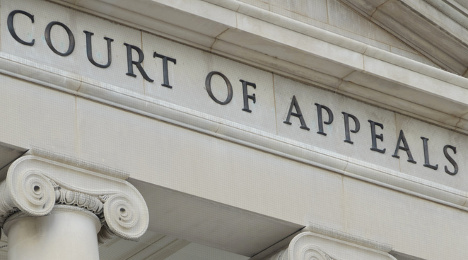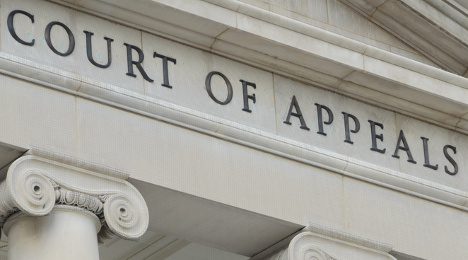Perhaps it wasn’t an upset to the level that might have impacted your bracket predicting winners of this year’s NCAA men’s basketball tournament. But the U.S. District Court for the District of North Dakota dismissing the Consumer Financial Protection Bureau’s lawsuit against a payment processor in the debt-collection space certainly caught the attention of Hudson Cook’s Lucy Morris, a firm partner who previously served as a deputy enforcement director at the CFPB from 2011 to 2014.
When SubPrime Auto Finance News connected with Morris last week to ask about how often this sort of development happens, she responded, “I don’t know if I could put a number on it, but I would say that typically the government doesn’t suffer a defeat like this. Again, it’s something they can remedy. The case isn’t over. There’s probably more to come because they can refile with a more robust complaint.
“This case is likely not over, but they’re going to have to be more clear about exactly what the defendants did that was likely to cause substantial injury to consumers,” Morris continued.
Morris first highlighted the case in an online post on Hudson Cook’s website. She explained the case pitted the CFPB against Intercept Corp., a third-party payment processor that handles electronic payments on behalf of payday lenders, sales finance companies, title lenders and debt collectors.
“The court simply ruled that the CFPB in its complaint wasn’t specific enough to state a claim for relief. It was conclusory,” Morris told SubPrime Auto Finance News. “The court dismissed the case but without prejudice, meaning the CFPB could revise its complaint to provide more specificity. The court simply said it’s not sufficient enough to go forward as it stands.”
Morris went on to explain the court held that the CFPB failed to show that consumers were likely to suffer substantial injury as a result of the payment processor’s alleged failure to identify the fraudulent activity of its consumer finance company clients. She shared with SubPrime Auto Finance News about how the bureau filed its argument on consumer complaints and other regulatory investigations, but it wasn’t enough to convince the court.
“To have an unfair practice, the practice has to be likely to cause substantial consumer injury, which is the most important piece of an unfairness claim,” she said.
The result in North Dakota came down on March 17, just before amicus briefs — legal documents filed in appellate court cases by non-litigants with a strong interest in the subject matter — began to arrive in association with the CFPB’s rehearing before the U.S. Court of Appeals for the District of Columbia Circuit.
That matter stems from a case in which the initial decision reached last October called the CFPB “unconstitutionally structured.” The case pits the regulator against PHH Corp., a Mount Laurel, N.J.-based finance company that operates in the mortgage space. The rehearing will intensify further when oral arguments before the en banc court will be heard on May 24.
“This is an agency that’s still quite young and it hasn’t had a lot of challenges in court cases, with PHH being the most notable exception. But I think increasingly you’re seeing issues get litigated about the CFPB’s authority and the use of that authority,” Morris said.
“The CFPB has been increasingly challenged in litigation. In some cases, they’re taking losses and they’re going to have to respond to those kind of challenges,” she added.
So what do all of these developments mean for auto finance companies that are feverishly underwriting contracts and collecting on outstanding balances? Morris emphasized how finance companies should remain vigilant with regard to compliance.
“I think it’s very important that they not diminish the importantance of compliance. From what I can tell, the CFPB is still going strong on the enforcement and supervision side. Notwithstanding that there’s been a lot of political talk, it’s not clear to me that there is going to be any immediate changes to the CFPB either in its leadership or structure. In fact, there’s been a ramping up on the supervision side, in particular in auto finance,” Morris said.
“Even if the CFPB does slow down because of some changes, you’ve always got the Federal Trade Commission and the state attorneys general who can come in and look at issues, too,” she went on to say.
On Thursday, the Consumer Financial Protection Bureau (CFPB) took action against Experian and its subsidiaries for what regulators said was “deceiving” consumers about the use of credit scores it sold to consumers.
The CFPB said Experian claimed the credit scores it marketed and provided to consumers were used by lenders to make credit decisions. The regulator found lenders did not use Experian’s scores to make those decisions.
The CFPB ordered Experian to “truthfully” represent how its credit scores are used. Experian must also pay a civil penalty of $3 million.
“Experian deceived consumers over how the credit scores it marketed and sold were used by lenders,” CFPB director Richard Cordray said. “Consumers deserve and should expect honest and accurate information about their credit scores, which are central to their financial lives.”
Experian, based in Costa Mesa, Calif., is one of the nation’s three largest credit reporting agencies. Experian markets, advertises, sells, offers and provides credit scores, credit reports, credit monitoring and other related products to consumers and third parties.
As finance companies know, credit scores are numerical summaries designed to predict consumer payment behavior in using credit. Many lenders and other commercial users consider these scores when deciding whether to extend credit.
The CFPB emphasized no single credit score or credit scoring model is used by every lender.
In addition to the credit scores that are actually used by lenders, the regulator said several companies have developed so-called “educational credit scores,” which lenders rarely, if ever, use. These scores are intended to inform consumers.
The CFPB recapped Experian developed its own proprietary credit scoring model, referred to as the “PLUS Score,” which it applied to information in consumer credit files to generate a credit score it offered directly to consumers. The PLUS Score is an “educational” credit score and is not used by lenders for credit decisions.
From at least 2012 through 2014, the CFPB charged that Experian violated the Dodd-Frank Wall Street Reform and Consumer Protection Act by “deceiving” consumers about the use of the credit scores it sold.
“In its advertising, Experian falsely represented that the credit scores it marketed and provided to consumers were the same scores lenders use to make credit decisions,” the CFPB said. “In fact, lenders did not use the scores Experian sold to consumers.
“In some instances, there were significant differences between the PLUS Scores that Experian provided to consumers and the various credit scores lenders actually use. As a result, Experian’s credit scores in these instances presented an inaccurate picture of how lenders assessed consumer creditworthiness,” the CFPB continued.
The regulator went on to state Experian also violated the Fair Credit Reporting Act, which requires a credit reporting company to provide a free credit report once every 12 months and to operate a central source — AnnualCreditReport.com — where consumers can obtain their report.
Until March 2014, the CFPB found that consumers getting their report through Experian had to view Experian advertisements before they got to the report. The regulator said this practice violates the Fair Credit Reporting Act prohibition of such advertising tactics.
Under the Dodd-Frank Wall Street Reform and Consumer Protection Act, the CFPB is authorized to take action against institutions engaged in unfair, deceptive, or abusive acts or practices, or that otherwise violate federal consumer financial laws. Under the consent order, Experian must:
—Pay a $3 million penalty: Experian must pay a civil money penalty of $3 million to the bureau’s civil penalty fund.
—Truthfully represent the usefulness of credit scores it sells: Experian must inform consumers about the nature of the scores it sells to consumers.
—Put in place an effective compliance management system: Experian must develop and implement a plan to make sure its advertising practices relating to credit scores and on Internet webpages that consumers access through AnnualCreditReport.com comply with federal consumer laws and the terms of the CFPB’s consent order.
The full text of the CFPB’s consent order against Experian is available here.
Does Richard Cordray possess more power than President Trump? No matter what Trump’s possible tweets might be to the contrary, one of the Constitution experts who testified during a U.S. House hearing on Tuesday declared that, in fact, the director of the Consumer Financial Protection Bureau holds more leverage than the occupant of the White House’s Oval Office.
During the session orchestrated by Subcommittee on Oversight and Investigations, former U.S. Solicitor General Ted Olson opened the witness testimony segment with a 16-page explanation about how the CFPB’s structure and the director’s enforcement capabilities are not what the Constitution writers intended.
Olson went so far as to say the CFPB director can overrule the president stemming from how the Dodd-Frank Act created the bureau.
“Within his vast realm, the director wields unchecked legislative, executive, and judicial powers — including the power to issue far-reaching regulations, bring actions to enforce those rules, punish businesses and individuals by adjudicating enforcement actions in the CFPB’s in-house court, and independently litigate in the government’s name,” said Olson, who was Solicitor General from 2001 through 2004, serving as the law officer directly below the attorney general in the Department of Justice and responsible for arguing cases before the Supreme Court.
“And if the director and the president, acting through an executive agency, disagree on the interpretation of federal consumer finance law, the director’s view controls. Thus, the CFPB’s organic statute even purports to give the director greater power than the president in the execution of federal consumer finance law,” continued Olson, who now is a lawyer with Gibson, Dunn & Crutcher in Los Angeles and Washington, D.C. and also lead counsel for PHH Corp., a Mount Laurel, N.J.-based finance company that operates in the mortgage space. PHH is involved in a rehearing against the CFPB before the U.S. Court of Appeals for the District of Columbia Circuit.
“Never before has so much federal power been concentrated in the hands of one individual so thoroughly shielded from constitutional accountability,” he went on to say.
Olson closed his prepared testimony by emphasizing what he considered to be the Constitutional flaw in the CFPB’s construction.
“This structure potentially relegates the chief executive to the role of a spectator as the CFPB director executes a vast body of federal law according to his own notions. The CFPB’s perpetual self-funding authority, moreover, removes the external check that Congress ordinarily exercises through the power of the purse,” said Olson, who was selected by TIME in 2010 as one of the 100 most influential people in the world.
“These and other features of the CFPB violate the Constitution and should be remedied expeditiously by Congress,” he went on to say.
The hearing entitled “The Bureau of Consumer Financial Protection’s Unconstitutional Design” continued with two other witnesses questioning how the CFPB is designed and the power of its director. The pair were Saikrishna Prakash — a James Monroe Distinguished Professor at the University of Virginia School of Law — and Adam White — a research fellow at Hoover Institution.
Coming to the CFPB’s defense was Brianne Gorod, who is chief counsel at Constitutional Accountability Center (CAC). Gorod reiterated why lawmakers crafted the Dodd-Frank Act and how the CFPB is similar to many other regulatory agencies.
“To start, the CFPB’s leadership structure — namely, the fact that it is led by a single director removable only for cause — is consistent with the text and history of the Constitution, as well as Supreme Court precedent,” said Gorod, who joined CAC from private practice at O’Melveny & Myers where she was counsel in the firm’s Supreme Court and appellate practice.
“In drafting the Constitution, the framers gave Congress considerable flexibility in determining how to shape the federal government. Consistent with that constitutional design, the Supreme Court held over 80 years ago that Congress may choose to shield the heads of independent regulatory agencies from presidential removal at will,” continued Gorod, who also spent two years from 2009 to 2011 as an attorney adviser in the office of legal counsel at the Justice Department.
Gorod closed with simple assertions.
“As this review of the bureau’s jurisdiction and authorities demonstrates, there is nothing extraordinary or unprecedented about the powers it exercises. These powers resemble those of comparable financial regulatory agencies and are subject to the same restrictions, along with additional limits unique to the bureau,” Gorod said.
“In sum, the text, structure and history of the Constitution, together with decades of Supreme Court precedent, demonstrate that the CFPB is constitutional. A close examination of its powers, and the checks on those powers, make clear that it is also politically accountable,” she went on to say.
The entire subcommittee hearing can be viewed here or via the video window at the top of this page.
Before the House event, the American Financial Services Association (AFSA) submitted a letter for the record, supporting reform of the CFPB’s single-director structure and adding that its annual budget should be appropriated by Congress.
“The CFPB should be subject to traditional checks and balances,” the association wrote. “Rather than the CFPB director dictating his own budget, Congress should exercise its constitutional power of the purse to determine the bureau’s budget. The CFPB should be placed under the appropriations process to ensure that the agency is not self-regulated and that Congress has proper oversight and funding authority over the bureau, as it does for other federal agencies.”
Like some of the experts at the hearing, AFSA also said that the agency should not be run by a single director with unilateral decision-making power and virtually no oversight.
“…the CFPB should be reconstituted as a bipartisan 'Consumer Financial Opportunity Commission' to ensure certainty, fairness and transparency…leading to more balanced and effective regulation,” AFSA said in its letter.
The parade of legal developments leading toward the U.S. Court of Appeals for the District of Columbia Circuit rehearing an important case involving the Consumer Financial Protection Bureau has started in earnest.
First, the American Financial Services Association, along with a dozen other organizations, delivered an amicus brief — a legal document filed in appellate court cases by non-litigants with a strong interest in the subject matter. AFSA joined other organizations that have involvement in auto finance such as the American Bankers Association (ABA), the Consumer Bankers Association (CBA) and the Credit Union National Association (CUNA), as well as the Financial Services Roundtable (FSR).
The entire matter stems from a case in which the initial decision reached last October called the CFPB “unconstitutionally structured.” The case pit the regulator against PHH Corp., a Mount Laurel, N.J.-based finance company that operates in the mortgage space.
It involved a three-judge panel of the court, which ruled the CFPB’s structure was constitutionally flawed and that its director, who currently is Richard Cordray, should be removable at the will of the president.
As AFSA shared through its weekly Newsbriefs, the case deals with Corday’s order from June 2015 asserting that PHH violated the Real Estate Settlement Procedures Act (RESPA). The CFPB asked for the rehearing after a panel of judges ruled that the CFPB’s structure of a single director who can only be removed by cause is unconstitutional.
The rehearing will intensify further when oral arguments before the en banc court will be heard on May 24. AFSA and its fellow industry organization looked to make clear their issues with the CFPB’s actions and what the court should do next.
“In abruptly departing from the plain language of the statute, the bureau’s own regulations and longstanding guidance for industry, the order exceeded the bureau’s authority and violated fundamental tenets of administrative law and fair notice. The order also raises the troubling specter of further changes without notice, deeply unsettling a market built on predicable legal rules,” the organizations said in their amicus brief, which is available here.
Meanwhile, last Friday, the U.S. Department of Justice filed its own amicus brief, referencing a 1935 case that determined the president has “Article II authority to supervise, direct and remove at will subordinate (principal) officers in the executive branch in order to exercise his vested power and duty to faithfully execute the laws.” The specific matter — Humphrey’s Executor vs. United States — involved how Congress could forbid removing members of the Federal Trade Commission except for cause.
Then, the Justice Department made its connection to this matter involving the CFPB.
“The principal constitutional question in this case is whether the exception to the president’s removal authority recognized in Humphrey’s Executor should be extended by this court beyond multi-member regulatory commissions to an agency headed by a single director,” DOJ officials said in its amicus brief obtained and posted online by Hudson Cook.
“While we do not agree with all of the reasoning in the panel’s opinion, the United States agrees with the panel’s conclusion that single-headed agencies are meaningfully different from the type of multi-member regulatory commission addressed in Humphrey’s Executor,” they continued. “The Supreme Court’s analysis in Humphrey’s Executor was premised on the nature of the FTC as a continuing deliberative body, composed of several members with staggered terms to maintain institutional expertise and promote a measure of stability that would not be immediately undermined by political vicissitudes. A single-headed agency, of course, lacks those critical structural attributes that have been thought to justify ‘independent’ status for multi-member regulatory commissions.
“Moreover, because a single agency head is unchecked by the constraints of group decision making among members appointed by different presidents, there is a greater risk that an ‘independent’ agency headed by a single person will engage in extreme departures from the president’s executive policy,” the Justice Department went on to say. “And as the panel recognized, while multi-member regulatory commissions sharing the characteristics of the FTC discussed in Humphrey’s Executor have existed for over a century, limitations on the President’s authority to remove a single agency head are a recent development to which the executive branch has consistently objected."
The Justice Department closed its summary with a request for the U.S. Court of Appeals for the District of Columbia Circuit.
“We therefore urge the court to decline to extend the exception recognized in Humphrey’s Executor in this case. In addition, in our view, the panel correctly applied severability principles and therefore properly struck down only the for-cause removal restrictions,” DOJ officials said.
The Consumer Financial Protection Bureau (CFPB) recently released a report detailing the problems in the credit reporting industry that the bureau said it has uncovered and corrected through its oversight work. Since launching its supervision of the credit reporting market, the CFPB has identified significant issues with the quality of the credit information being provided by furnishers and maintained by credit reporting companies.
The report outlines the actions that the CFPB has taken to address these ongoing problems, such as fixing data accuracy at credit reporting companies, repairing the broken dispute process and cleaning up information being reported.
“Since we began our oversight work, the CFPB has been uncovering and correcting problems in the consumer reporting industry,” CFPB director Richard Cordray said. “Because of our work, important improvements are being made. Much more work needs to be done but our corrective actions are leading to positive changes that are benefiting consumers all over the country.”
The CFPB maintained that consumer reporting companies are businesses that track information about a consumer, including credit history, deposit account history and other consumer transactions. The agency insisted such companies, which include what are popularly called credit bureaus or credit reporting companies or agencies, play a key role in the consumer financial services marketplace and in the financial lives of consumers.
For example, officials pointed out the reports sold by the three largest consumer reporting companies — Equifax, Experian and TransUnion — are used in determining everything from consumer eligibility for credit to the rates consumers pay for credit. The consumer reporting companies receive their information from furnishers, including both banks and nonbanks.
“Inaccurate information can lead to inaccurate reports, and consumer and market harm,” the CFPB said.
Consumers continue to complain about the credit reporting industry in high numbers. The bureau has handled approximately 185,700 credit reporting complaints as of Feb. 1.
“Consumers have said that when they dispute an item on their report, nothing changes even though federal law requires the consumer reporting company to conduct a reasonable reinvestigation and update the file to reflect any necessary changes or delete the item,” the bureau said.
“Consumers also frequently complain of debts already paid showing up on their report as unpaid and information that is not theirs being included in their report negatively affecting their credit scores,” the regulator added.
In 2012, the CFPB became the first federal agency to supervise all sides of the credit reporting market, which includes the consumer reporting companies and providers of consumer financial products or services, many of whom furnish or use consumer reports. In 2013, the CFPB published a bulletin warning that the agency would hold furnishers accountable for their legal obligation to investigate consumer disputes forwarded by the consumer reporting companies. The bulletin also reminded companies that they must review all relevant information provided with the disputes, including documents submitted by consumers.
The CFPB added that it has also made efforts to educate the public about the importance of checking their credit reports, what to look for in their reports, and how to dispute mistakes. As outlined in its special edition of Supervisory Highlights, because of these widespread issues, CFPB supervision has aimed its work at:
—Fixing data accuracy at consumer reporting companies: Early on, examiners found that one or more of the consumer reporting companies lacked good quality control to check the accuracy of their consumer records. The CFPB directed them to make necessary changes, and they did.
In recent exams, examiners have found that quality control programs have been instituted that include tests to identify whether reports are produced for the wrong consumer and whether reports contain mixed-up files. The companies are also taking better corrective actions when mistakes are identified, and making system improvements to prevent the same mistakes from happening again.
—Repairing broken dispute processes at consumer reporting companies: CFPB examiners discovered that one or more consumer reporting companies were not following federal requirements that said they must send a notice with the results of disputes to consumers. They also found one or more consumer reporting companies failing to consider documentation provided by the consumer on a disputed item.
The CFPB directed these companies to improve their dispute investigation systems. Now, continued monitoring has shown that the consumer reporting companies have improved processes for investigating disputes and are improving response letters to consumers.
—Cleaning up information from furnishers: Through earlier reviews at banks and nonbanks, CFPB examiners found widespread problems with furnishers supplying incorrect information to the consumer reporting companies. The CFPB directed them to take steps to address these problems, such as maintaining evidence that they are accurately handling disputes and conducting reasonable investigations.
Since then, the bureau indicated several furnishers have dedicated more resources to ensuring the integrity of the information. This effort includes better investigations and handling of disputes, notifying consumers of results, and taking corrective action when inaccurate information has been supplied. Importantly, though, examiners continue to find numerous violations at one or more furnishers, particularly around deposit account information.
The CFPB went on to mention its approach when examining the credit reporting activities of supervised entities is just like its approach to examining other activities of supervised entities. Supervision includes a review of compliance systems and procedures, on-site examinations, discussions with relevant personnel and requirements to produce relevant reports. The Fair Credit Reporting Act governs how companies handle consumers’ information.
When examiners find violations of law, they direct the companies to change their conduct and remediate consumers. When appropriate, the CFPB’s supervisory activity also results in enforcement actions, such as the action against the furnisher Wells Fargo Bank for failing to update or correct inaccurate, negative information reported to credit reporting companies about student loans.
The latest edition of the CFPB's Supervisory Highlights that focus on credit reporting is available here.
Two legal experts told SubPrime Auto Finance News that they were not surprised when the U.S. Court of Appeals for the District of Columbia Circuit last week granted a rehearing request for a case involving the Consumer Financial Protection Bureau.
Still, both Hudson Cook chairman Michael Benoit and Terry O’Loughlin, who is the director of compliance for Reynolds Document Solutions, described how noteworthy the next development will be when oral arguments before the en banc court will be heard on May 24.
“I am not surprised even though it is relatively unusual for cases to be heard en banc,” O’Loughlin said. “It is not favored since convening a full panel of active judges consumes a considerable amount of time and resources of the court. It is reserved where there may be a conflict in rulings, to establish uniformity, or the proceeding involves a question of exceptional importance. In this case it clearly is the latter.
“This case involves a significant constitutional issue: can an independent agency exercising substantial authority be headed by a single person? It has never happened,” he continued. “But there are also other conflicts of law, such as the status of administrative judges, which needs to be addressed.”
The entire matter stems from a case in which the initial decision reached last October called the CFPB “unconstitutionally structured.” The case pit the regulator against PHH Corp., a Mount Laurel, N.J.-based finance company that operates in the mortgage space.
It involved a three-judge panel of the court, which ruled the CFPB’s structure was constitutionally flawed and that its director, who currently is Richard Cordray, should be removable at the will of the president.
Both Benoit and O’Loughlin pointed out that the Dodd-Frank Act currently stipulates that the director may only be removed “for cause.” In granting the petition asked for by the CFPB, Benoit noted the court ordered that the three-judge panel’s ruling last October be vacated.
“When you request a rehearing en banc, it’s rehearing of the same case in the same court so the original decision goes away. It’s vacated because they’re not reviewing their own decision,” Benoit said.
“Because they got the hearing en banc, that wipes out the decision. It’s like it never happened. They’re going to start over and hear it again,” Benoit added.
The appeals court also said it is asking case participants to answer these questions:
— Is the CFPB’s structure as a single-director independent agency consistent with Article II of the Constitution and, if not, is the proper remedy to sever the for-cause provision of the statute?
— May the court appropriately avoid deciding that constitutional question given the panel's ruling on the statutory issues in this case?
— If the en banc court concludes in that case that the administrative law judge who handled that case was an inferior officer rather than an employee, what is the appropriate disposition of this case?
“The fundamental rule of judicial restraint is that prior to reaching any constitutional questions, federal courts must consider non-constitutional grounds for decision. These questions are an attempt to avoid the larger constitutional issue regarding whether Richard Cordray, and the organization of the CFPB, are unconstitutionally organized. These are intriguing questions,” said O’Loughlin, who spent more than a dozen years with the Florida attorney general’s office before joining Reynolds and Reynolds.
Benoit is one of the closest watchers of CFPB developments within the Hudson Cook legal team so he called the move coming out of the appellate court “a pretty big deal.”
He continued by saying, “It is very interesting because this is a unique situation where we have an agency that’s referred to in a statute as an executive agency but then it has a single director who can’t be fired at will by the president. In every other executive agency, the president can fire the appointed leaders who work at the pleasure of the president.
“The CFPB functionally operates as an independent agency and historically independent agencies have been led by commissions rather than a single person,” Benoit said. “The rationale behind that is that these are politically balanced commissions so that when you have a change in administration or a change in leadership, you don’t have these wild swings in policy and interpretation of the law. You don’t have the see-saw effect that I think will be something we see from the CFPB when Richard Cordray is ultimately replaced or until we move to a commission structure.”
SubPrime Auto Finance News asked Benoit and O’Loughlin to project what might happen when the rehearing occurs in May and what finance companies should do in the meantime.
“If I had to look in my crystal ball, I would think that they would still rule in favor of PHH, but they’ll do it on statutory grounds and not on constitutional grounds,” Benoit said.
O’Loughlin added, “Until the court renders a decision, it is business as usual with the CFPB since the original judgment was vacated. In other words, the CFPB’s authority remains intact for now.
“Finally, it wouldn’t be surprising if this case ultimately is heard by the Supreme Court, since the en banc decision is likely to be appealed regardless of the result,” O’Loughlin went on to say.
As reported by other media outlets as well as the American Financial Services Association and Hudson Cook, the U.S. Court of Appeals for the District of Columbia Circuit on Thursday granted the rehearing petition involving the case in which the initial decision reached last October called the Consumer Financial Protection Bureau “unconstitutionally structured.”
Along with that declaration, AFSA recapped that the case pitting the regulator against PHH Corp., a Mount Laurel, N.J.-based finance company that operates in the mortgage space, involved a three-judge panel of the court, which ruled the CFPB’s structure was constitutionally flawed and that its director, who currently is Richard Cordray, should be removable at the will of the president.
AFSA pointed out that the Dodd-Frank Act currently stipulates that the director may only be removed “for cause.”
In granting the petition asked for by the CFPB, AFSA and Hudson Cook both noted the court ordered that the three-judge panel’s ruling last October be vacated.
The appeals court also said it is asking case participants to answer these questions when an oral argument before the en banc court will be heard on May 24.
—Is the CFPB’s structure as a single-Director independent agency consistent with Article II of the Constitution and, if not, is the proper remedy to sever the for-cause provision of the statute?
—May the court appropriately avoid deciding that constitutional question given the panel's ruling on the statutory issues in this case?
—If the en banc court, concludes in that case that the administrative law judge who handled that case was an inferior officer rather than an employee, what is the appropriate disposition of this case?
“A decision is not expected until late summer at the earliest; a decision in the fourth quarter of this year is more likely,” AFSA said through its weekly Newsbriefs posting.
When Hudson Cook learned of the development, the firm said on its website, “In its October 2016 decision, the appellate court found that the director of the CFPB ‘enjoys more unilateral authority than any other officer in any of the three branches of the U.S. Government, other than the president.’ The appellate court ruled that the CFPB can continue to operate, but ‘will do so as an executive agency akin to other executive agencies headed by a single person, such as the Department of Justice and the Department of the Treasury’ and will be removable by the president.”
Upon learning the development, Richard Hunt was another of the industry advocates to react. Hunt is president and chief executive officer of the Consumer Bankers Association (CBA).
“The court’s decision only creates further uncertainty regarding the constitutionality of the CFPB,” Hunt said. “As the CFPB is tasked with the important duty of consumer protection, Congress and the administration must move immediately to address this concern on behalf of consumers and create a five-person bipartisan commission.
“The vast majority of other federal agencies with immense power employ a bipartisan commission structure as it brings multiple viewpoints and balance to the table,” he continued.
Proposal to abolish the CFPB
The announcement by the U.S. Court of Appeals for the District of Columbia Circuit is the second major development associated with the CFPB this week as Sen. Ted Cruz and Rep. John Ratcliffe — both from Texas — introduced measures that would eliminate the CFPB altogether.
Cruz and Ratcliffe said the pair of bills (S. 370 and H.R. 1031) would help advance Republicans’ broader Dodd-Frank reform efforts by tackling Title X of the law.
“Don’t let the name fool you, the Consumer Financial Protection Bureau does little to protect consumers. During the Obama administration, the CFPB grew in power and magnitude without any accountability to Congress and the people, and I am encouraged by the actions President Trump has begun to take to roll back the harmful impacts of an out-of-control bureaucracy,” Cruz said.
“The legislation that Rep. Ratcliffe and I are introducing today gives Congress the opportunity to free consumers and small businesses from the CFPB’s regulatory blockades and financial activism, which stunt economic growth,” Cruz continued. “While there’s much more to do to scale back the harmful regulatory impositions of Dodd-Frank, this legislation takes a critical step in the right direction.”
Ratcliffe added, “The past several years showed us precisely why massive swaths of federal regulations are never the right solution to help hard-working Americans. President Trump has made it clear he’ll join us in our fight to dismantle Dodd-Frank and finally offer some relief to the small business owners throughout Texas and across the country who’ve been hit hardest by its devastating impact.
“The CFPB’s lack of accountability to the American people was quickly evidenced when — contrary to its name — it ended up hurting many of the very folks it was intended to help,” Ratcliffe went on to say. “While Sen. Cruz and I have been sounding the alarm on the CFPB’s federal overreach for some time now, I’m optimistic at our renewed chances of advancing this effort with a willing partner in the White House.”
Full text of the proposals can be viewed here.
Before Tom Brady and the New England Patriots claimed another Super Bowl victory on Sunday night, President Trump released his latest executive order and outlined what he called the “core principles” of financial system regulation, generating a wide array of industry-supporting and consumer-backing organization reactions.
These “core principles” arrived at the same time Trump instructed the Treasury Secretary to meet with member agencies of the Financial Stability Oversight Council — which includes the Federal Reserve, the Consumer Financial Protection Bureau and the Securities and Exchange Commission — to examine the components of the Dodd-Frank Act and what portions potentially can be reduced or even eliminated.
“We expect to be cutting a lot out of Dodd-Frank because, frankly, I have so many people, friends of mine that have nice businesses that can’t borrow money. They just can’t get any money because the banks just won’t let them borrow because of the rules and regulations in Dodd-Frank,” Trump said ahead of Friday’s Strategy and Policy Forum; an event that included Jamie Dimon of J.P. Morgan Chase, Mary Barra of General Motors and Dan Yergin of IHS Markit.
During his weekly radio address, Trump added, “On every single front, we are working to deliver for American workers and American families. You, the law-abiding citizens of this country, are my total priority. Your safety, your jobs and your wages guide our decisions.
“We are here to serve you, the great and loyal citizens of the United States of America,” the president went on to say.
Before going into the reaction of organizations such as the National Automotive Finance Association and the American Financial Services Association, here are those seven “core principles” Trump outlined:
— Empower Americans to make independent financial decisions and informed choices in the marketplace, save for retirement, and build individual wealth
— Prevent taxpayer-funded bailouts
— Foster economic growth and vibrant financial markets through more rigorous regulatory impact analysis that addresses systemic risk and market failures, such as moral hazard and information asymmetry
— Enable American companies to be competitive with foreign firms in domestic and foreign markets
— Advance American interests in international financial regulatory negotiations and meetings
— Make regulation efficient, effective, and appropriately tailored
— Restore public accountability within Federal financial regulatory agencies and rationalize the Federal financial regulatory framework.
After reviewing Trump’s latest executive order, NAF Association executive director Jack Tracey expressed support in an email message to SubPrime Auto Finance News.
"The National Automotive Finance Association commends the president’s commitment to review the Dodd-Frank Act and the regulatory environment surrounding the consumer finance. And we support his seven core principals of regulation as the foundation for the review," Tracey said.
"Our financial system is a principal driver of the country’s prosperity," he continued. "Unnecessary and overly restrictive regulation limits the role the financial community plays in growing the economy, creating jobs and providing individuals with the ability to have access to credit to finance their transportation needs.
"The auto financing industry is anxious to work with regulators to build a marketplace where consumer rights and interests are protected and funding for car financing is readily available," Tracey went on to say.
In a separate email message to SubPrime Auto Finance News, AFSA vice president of communications Jack Ferry said, “The American Financial Services Association (AFSA) has worked to protect access to safe, responsible consumer credit for over 100 years. Today’s executive order will examine the federal regulatory burden that many financial services companies face, with the goal of reducing that burden and expanding credit access nationwide.
“AFSA will continue to illustrate the important role that access to consumer credit plays in the American economy,” Ferry added.
Also chiming in was the Financial Services Roundtable, which represents the largest integrated financial services companies providing banking, insurance, payment and investment products and services to the American consumer.
“Modernizing America’s financial regulatory system in ways that will grow the economy, create jobs and protect consumers as well as taxpayers is a key ingredient to boosting financial opportunities for America’s families and businesses,” said Financial Services Roundtable chief executive officer Tim Pawlenty, a former presidential candidate and governor of Minnesota.
More reaction from industry supporters
When seeing the White House developments, Consumer Bankers Association president and CEO Richard Hunt disseminated immediate reaction via his Twitter account.
“The latest executive order on financial regulations is a signal to the marketplace and consumers,” Hunt posted.
“Banks are better capitalized today than in history. Now is the time to look to reforms and bring balance back. Time to move this economy,” he added in another Tweet.
Two other organization that represent institutions that not only participate in auto financing but also hold deposits and offer other services reacted affirmatively to what Trump did. Those comments included:
Rob Nichols, American Bankers Association president and CEO:
“While banks have continued to meet the needs of their customers, clients and communities to the best of their ability, they have faced tremendous headwinds that came with a sharp increase in highly prescriptive government regulation and the sheer weight of more than 24,000 pages of proposed and final Dodd-Frank rules.
“We appreciate the administration’s support for pro-growth policies so banks can go even further in helping communities and our economy thrive. Reducing the strong regulatory headwinds banks face is critical to increasing lending that drives job creation across America.
“A sensible and careful review of Dodd-Frank and other financial regulations can and should strengthen those goals while unleashing the power of the banking industry — from small towns and communities to our nation’s financial centers — to fuel the increase in economic prosperity that we all seek. We look forward to working in a bipartisan manner with the administration, Congress and bank regulators on policy changes that will keep banks strong and focused on providing the capital that is so essential to rebuilding our economy.”
Jim Nussle, Credit Union National Association president and CEO:
“We appreciate the administration's direction to ensure that regulations are appropriately tailored to target those harming consumers and to provide more consideration to the impact of these regulations on American consumers.
“The current one-size-fits-all style of regulation does not work for Main Street – local credit unions, small banks, and the consumers and small businesses they serve. We're hopeful that the core principles spelled out today will help ensure community financial institutions and the millions of Americans that rely on them are able to operate in a more favorable environment. We stand willing to work with the administration and Congress to make appropriate changes to achieve these goals.”
Pushback against Trump’s actions
While the CFPB declined to offer an official comment to Trump’s executive order, a host of other consumer-oriented groups expressed varying degrees of disappointment. Here are a couple of examples.
According to Wade Henderson, president and CEO of The Leadership Conference on Civil and Human Rights, “Making the financial system more fair and transparent is essential to providing low-income and minority communities with more economic stability. Over the past decade, our country has learned hard lessons about what happens when the game is rigged and regulators turn their backs to reckless subprime mortgages, payday loan debt traps, and shady bank account fees.
“President Trump seems bent on forgetting those lessons and on betraying the people he professed to represent when he talked about a ‘rigged’ system,” Henderson continued.
And Lisa Donner, executive director of Americans for Financial Reform, added, “Wall Street titan Goldman Sachs seems to be taking over financial regulation in the United States, trying to make it easier for them and other big banks like Wells Fargo to steal from their customers and destabilize the economy. That is a betrayal of the promises Trump made to stand up to Wall Street. If they succeed it will have painful consequences.”
Compliance experts and industry advocates have been trying to project what might happen to the Consumer Financial Protection Bureau since President Trump was elected back in November.
Two developments arrived this week that perhaps might give auto finance companies and other service providers a bit more clarity.
First, U.S. Senator Deb Fischer, a Nebraska Republican, and two of her GOP colleagues from the upper chamber reintroduced legislation that would make changes to the structure of the CFPB, replacing the single director with a bipartisan board of directors comprised of five individuals.
Then multiple online reports appeared early Friday indicating Trump was set to sign another executive order; this time calling for a significant review of the Dodd-Frank Act with the aim of considerably scaling back the regulatory structure the legislation enacted.
The CFPB declined to comment about the reported Trump order when reached by SubPrime Auto Finance News on Friday morning. However, CFPB director Richard Cordray made a clear point about the bureau’s objective through his prepared remarks when the agency released its study on debt collection early last month.
“The Consumer Bureau has the authority and the duty to enforce the law to protect consumers, and we will not tolerate those who harm them by violating the law. Our work to ensure that all consumers are treated with dignity and fairness will continue,” Cordray said.
No matter that pledge, Fischer highlighted the changes her proposal — the Consumer Financial Protection Board Act — would bring, including:
— Each board member would be appointed by the president and confirmed by the Senate.
— The president would appoint one of the five members of the board to serve as chairperson of the board.
— Board members would each serve staggered five-year terms, and no more than three members would be from the same political party.
— The legislation would take effect on the date on which not less than three persons have been confirmed by the Senate to serve as members of the board of directors.
Co-sponsors of the bill included Sen. John Barrasso of Wyoming and Sen. Ron Johnson of Wisconsin.
“For years, the bad decisions made by a single director at the CFPB have kept families locked out of economic opportunity,” Fischer said. “My bill would prevent this misconduct by divesting the authority from one director to a five-member bipartisan board.
“This much-needed structural adjustment would bring accountability to the bureau and give more Americans a chance to build their own businesses and provide for their families,” she continued.
This proposed measure is the sort of action experts predicted might happen; authorities who participated in a nearly hour-long panel discussion during last week’s Vehicle Finance Conference hosted by the American Financial Services Association. One of those experts was Frank Salinger, who now operates his own firm, Public Policy Law Practice, but also served with AFSA during the 1980s.
“When you think about it, for 236 years of our republic, people managed to make loans without the CFPB. Somehow it all functioned. Then this agency is created. What is the Republican answer? Let’s make it better. Let’s make it a commission, not abolishing it,” Salinger said.
At the start of the panel session, AFSA vice president Bill Himpler asked the audience about whether Cordray would remain through the end of his term that’s set expire next summer. Using electronic polling equipment, more than 80 percent of participants said Cordray would not finish his term.
Those results triggered a wide array of observations from another expert on the panel, Mark Calabria is director of financial regulation studies at the Cato Institute. Before joining Cato in 2009, he spent six years as a member of the senior professional staff of the U.S. Senate Committee on Banking, Housing and Urban Affairs.
“I think there will be a push by this administration to replace Cordray,” Calabria said. “I would emphasize that this crowd might not have the anger toward Cordray that some others do. But almost to a person, everyone who works on financial policy in Washington really dislikes the guy.
“You could have someone put in that agency who could have made it a bipartisan, generally liked agency,” Calabria continued. “Cordray decided not to do that. He decided to be extremely partisan, and I think that’s kept the issue alive in a way that would not have been the case now.”
Calabria’s assessment of the feelings about Cordray went even further, suspecting that about a third of CFPB’s staff “would be happy to see Cordray go.”
If the CFPB remains under the controls of a single director, Calabria also has a hunch who the replacement would be — Randy Neugebauer, a former Texas Republican who was chairman of the U.S. Financial Institutions and Consumer Credit Subcommittee and chose not to run for reelection last year.
“There’s just too much for the president to do right now if he didn’t think this was a priority. The tea leaves say to me that Neugebauer will be the nominee, and we’ll hear his name within the next month,” Calabria said.
And what would happen to Cordray? Salinger addressed that question.
“We must remember that Cordray is a politician,” Salinger said recapping the director’s time as an elected state lawmaker and treasurer as well as time as attorney general in Ohio along with his failed attempts to secure spots in both the U.S. House and Senate.
“When he took the job, the conventional wisdom in Washington was he would be here and go back and run for governor,” Salinger continued. “But by the time the election came around, (current governor) John Kasich’s numbers were off the charts and he won in a landslide. So if Cordray wants to go back, he doesn’t have many options. If he wants to run for governor, that won’t be until 2018.”
So whether Cordray eventually is replaced with another single director or a five-member board, Calabria added one more assessment of what his CFPB legacy might be.
“A Republican could come in and be very aggressive,” Calabria said. “Because Cordray has decided he does not want to do this through the appropriate way through regulation, but just do it off the top of his head very discretionary, has left himself open to much of what he’s done simply being undone the next day.”
Formed through thousands of conversations with the nation’s leading dealership principals and finance companies, EFG Companies finalized four predictions and recommendations for 2017.
President and chief executive officer John Pappanastos summarized the results on Tuesday, saying these insights reflect an air of cautiousness for the F&I market.
But Pappanastos added there are many options for the industry to successfully navigate an uncertain business climate for a prosperous year.
“Even though the election is over, we continue to see a murky forecast for the F&I market moving forward,” Pappanastos said. “Consumers clearly want a new — and at least partially online-buying process. This trend has significant impact for the F&I industry across retail and lending channels.
“We also expect to see credit tightening on the consumer side and a foreshadowing of reduced auto manufacturer incentives for dealers, which will impact their margins,” he continued.
“Finally, we don’t believe federal regulatory oversight will diminish to the level that is being hyped. So, we strongly believe compliance will continue to challenge dealers and lenders,” Pappanastos went on to say.
“All that being said, we believe that the changes transforming the auto industry will create unique opportunities for dealers and lenders to leverage as they look to expand their business,” he added.
Four other executives from EFG Companies elaborated about the thoughts Pappanastos mentioned.
1. Flat volumes, compliance, and customer retention for retail automotive
While Consumer Financial Protection Bureau (CFPB) authority may be up in the air, John Stephens, executive vice president of dealer services, noted that dealers will need to stay the course on compliance for 2017.
“Remember, the Federal Trade Commission (FTC) has jurisdiction over dealers and its operations are not impacted by any potential changes within the CFPB,” Stephens said.
“Analysts are predicting flat unit sales volumes, pushing dealers to maximize their investment by squeezing more profitability out of their F&I operations,” he continued. “Customer retention efforts will increase, prompting dealers to shore up their service drive and fixed operations to deliver the ‘luxury car’ level of service.
In addition, an influx of off-lease vehicles will increase used-car inventory while putting pressure on pricing. Whether purchasing new or used, the customer will be king in 2017,” Stephens went on to say.
2. Return on investment and shorter transaction times key for F&I agents
With dealerships feeling increased pressure, Adam Ouart, vice president of agency services, projected that F&I agents will also experience a trickle-down effect to clearly demonstrate a return on investment for the F&I products they place at a dealership.
“Agents will also feel pressure to help dealers shorten transaction time and pivot their operations to support online transactions,” Ouart said. “Agents will closely monitor their own businesses to keep production levels high and begin focusing more on acquiring new dealership business. “
3. Rising interest rates and portfolio evaluations will challenge finance companies
Regardless of what happens with the CFPB, Brien Joyce, vice president of specialty services, said finance companies will also need to stay the course.
“You don’t stop treating customers right on the off chance that the government might not see your good behavior,” Joyce said. “Increasing interest rates will pressure lenders to tighten lending standards and evaluate other options to protect their loan portfolio outside of APR and loan terms. The same can be said for credit unions and other lenders that offer auto loans directly to consumers.
“I expect more lenders to evaluate how consumer protection products can benefit them from the standpoint of differentiating their institutions from the competition, protecting their loan portfolio, increasing loan volume, and controlling compliance,” he continued.
“In addition, dealers will re-evaluate their lender roster, confirming a broad spectrum of partners that specialize in different credit tiers, and help dealers meet their profitability goals,” Joyce added. “This will put pressure on lenders to evaluate their service model for dealerships and make adjustments to tackle mutual dealer and lender challenges.”
4. Growth and finance company challenges continue for powersports dealers
Although unit sales fell in the second half of 2016, Glenice Wilder, vice president of powersports, is anticipating volume will pick up in February when early income tax refunds arrive.
“There will be a slight growth in the powersports market overall in 2017 with dealers putting greater emphasis on increasing aftermarket income through the sale of F&I products,” Wilder said. “Lenders that remain in the powersports market will want to insulate their loans and may look to offering their own complimentary F&I products.
“As powersports dealers continue to be starved for lenders, up-to-date technology resources, and committed employees, they will pressure their vendors and product administrators to provide outside the box solutions for these obstacles, such as digital F&I services,” Wilder added.












